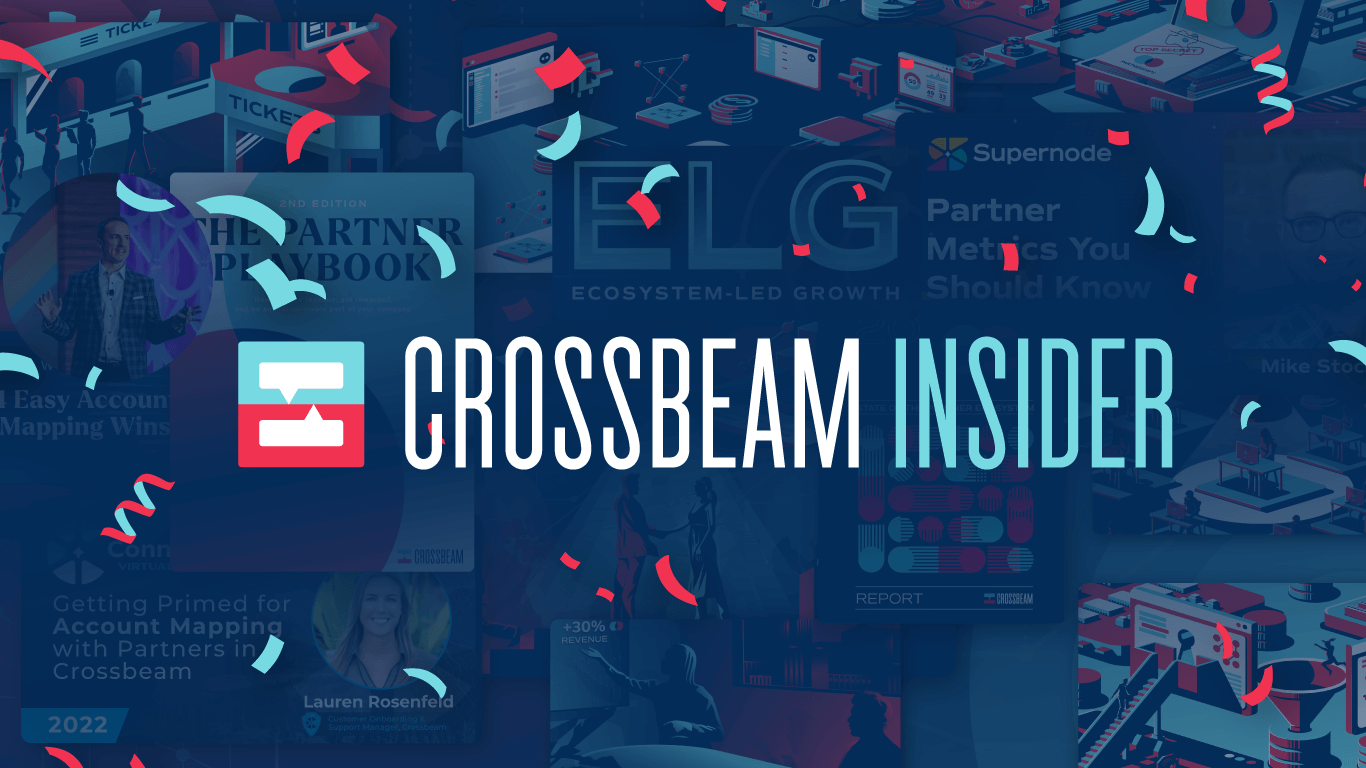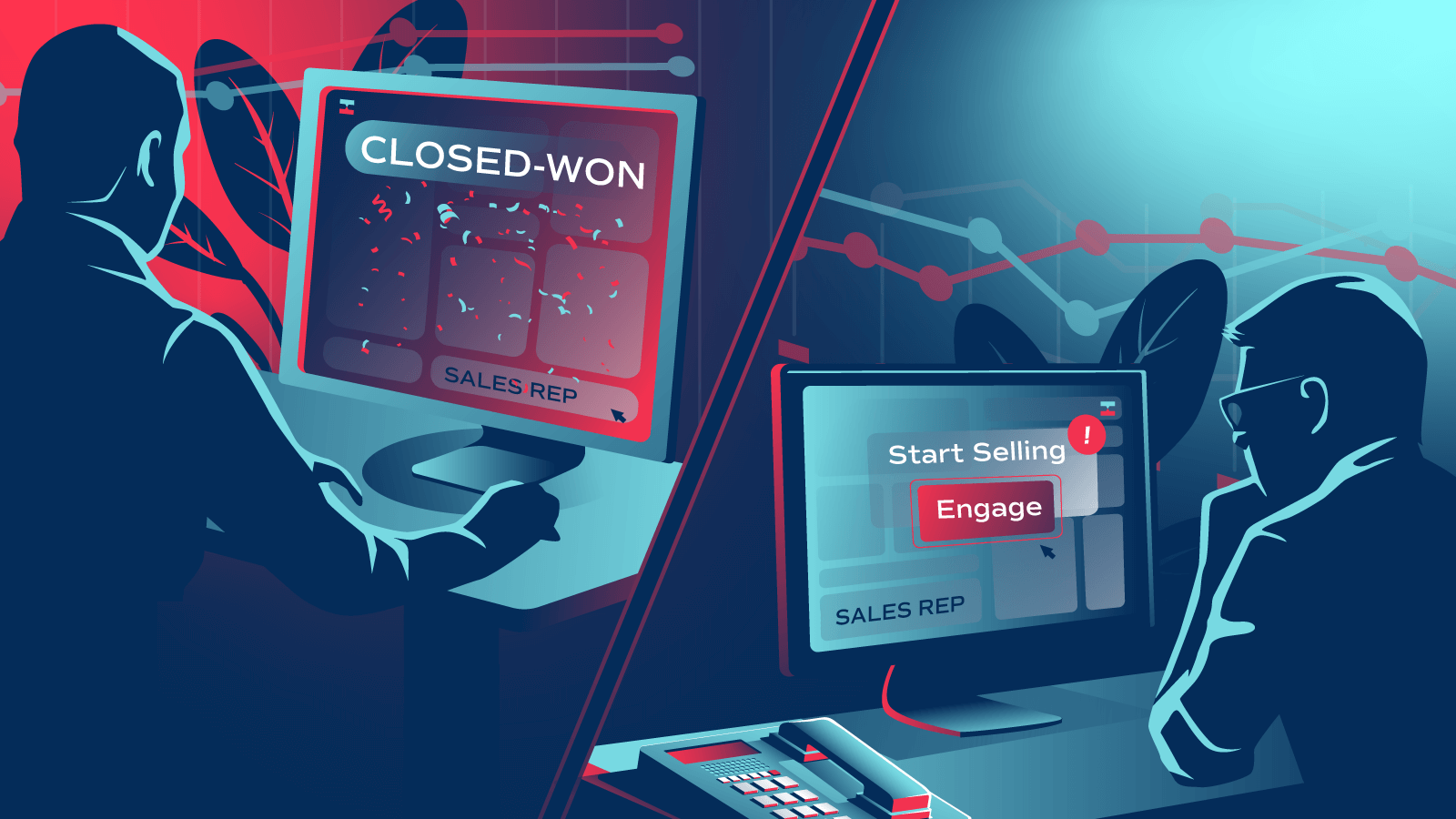The Prisoner’s Dilemma
You’ve just been arrested for bank robbery. Across the dark hallway, your accomplice Richard is being led into a conference room. As the door slams shut, police begin questioning him. Your hands shake. Your body quivers. Most of all, your mind races.
What is Richard telling the police? Is he blaming the robbery on me? Would he stay loyal to me in the face of serious prison time?
Your mind races even more. You weigh your options and the outcomes.
What should I say when I’m questioned? Should I “defect” and implicate Richard or try to “cooperate” with my accomplice and stay silent?
You and Richard are stuck in the Prisoner’s Dilemma — and your fates are intertwined by the decisions you make. It’s actually a classic game theory problem that researchers began studying in 1950. Based on how you and Richard behave, you’ll end up serving the prison sentences in one of the four outcomes below:
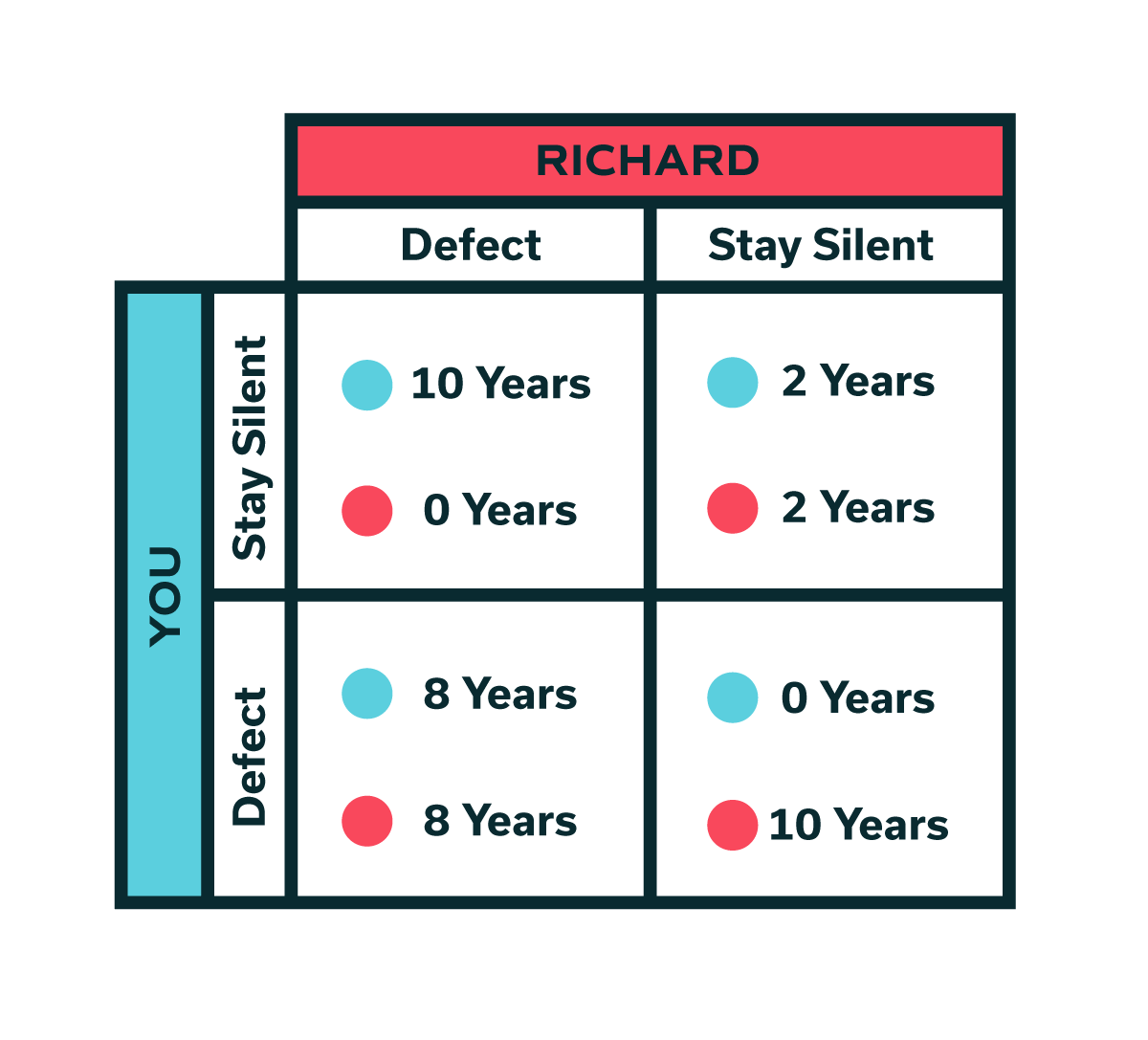
The best overall outcome (2 years of prison each) is for both of you to stay silent, but you have no way of assuring that the other will do so. Even though you both have every reason to trust each other, the risk of being “defected on” is so great that it makes you wonder if cooperating with Richard is the right move. Complicating things is the fact that he’s surely doing the same math.
What would you do in that situation? Well, game theory does give us a “correct” answer — known as the Nash Equilibrium — and it’s a chilling one: Always defect. Even though mutual cooperation leads to a better overall outcome, the game is rigged against you. Each individual always fares better if they defect, regardless of what the other person does.
Ironically, this leads to the worst outcome always taking place: both sides defect. Kiss eight years goodbye.
What does this have to do with partnerships?
We live in a world where the interconnectivity between companies is greater than ever. The booming API economy has enabled a new era of technology integrations and automations that are intertwining the growth curves of countless businesses.
Unfortunately, the most exciting benefits of this shift remain uncaptured. Partner programs fail to provide consistent, actionable outputs, suffer from poor attribution, and offer unclear ROI. This is particularly frustrating when compared to modern innovations in sales, marketing, and customer success, where SaaS tools and data analytics have rewritten the best practices of business growth.
This gap exists because companies will not — and often should not — trust each other with their data. Even answering a simple question like “how many customers do we have in common?” is impossible unless both sides share their full data sets so they can be compared for overlaps. And they almost never do.
Does this sound familiar? It should. This is the Partnership Dilemma.
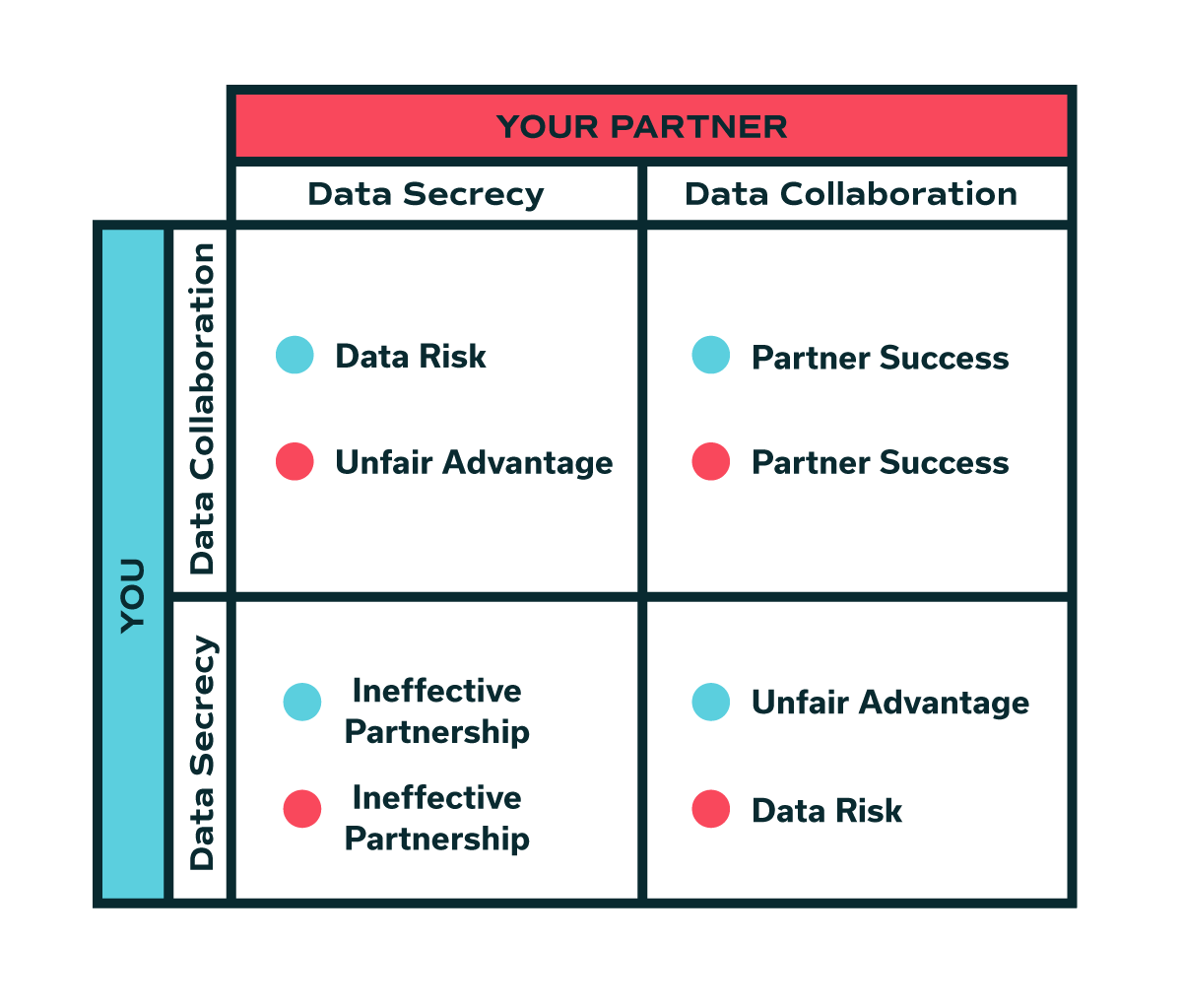
The game dynamics are the same: In a world of absolute trust, there are great benefits to mutual data collaboration. But in the era of GDPR and unprecedented focus on data security and compliance, handing your data directly to a partner is simply a non-starter.
The Nash Equilibrium is the same: Always defect. And that’s what everyone does. No collaboration means no data. No data means no innovation. And here we are with our heads in the sand and a massive growth channel unrealized.
Changing the Game
“The only winning move is not to play.” -WarGames, 1983
Partnerships are quite different from bank robberies. They are collaborative, not destructive, and actually create net new value for every party involved. All that’s missing from realizing their full potential is a mechanism for sharing what’s appropriate and protecting everything else.
Neither company in the partnership can do this work. It requires an independent third party that has a relationship with each partner and is governed by the same rules and standards that they are. A trusted middleman that is bound to secrecy.
Crossbeam, a Partner Ecosystem Platform (PEP) that helps companies build more valuable partnerships, is that solution. Our goal is to literally change the game. We want to eliminate the Partnership’s Dilemma altogether.
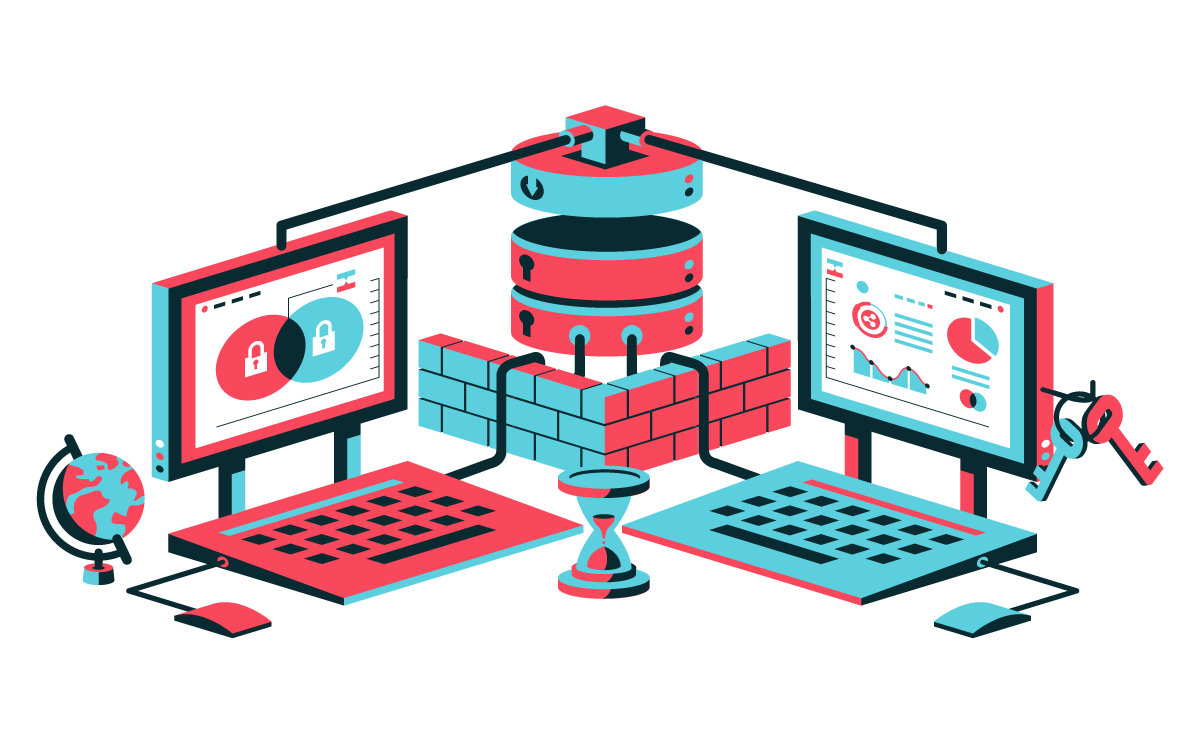
Crossbeam works like a data escrow service, allowing partners to find overlapping data like shared customers and prospects, while keeping the rest of their data private and secure.
See Crossbeam Now
Interested in learning more? Ready to kick the tires on Crossbeam? Head over to our Get Started page and you’ll be up and running in no time.
Turn your ecosystem into your #1 revenue source
Get started in under a minute. Instantly capture insights from your partners. Identify more opportunities. Did we mention it’s free?



